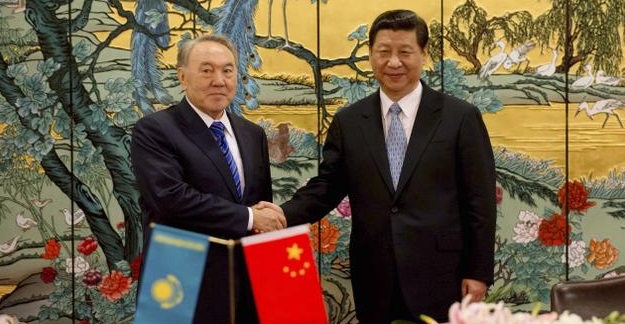China thanks Kazakhstan over de-radicalization scheme
March 30, 2019 | Expert Insights

The Chinese government’s top diplomat has thanked Kazakhstan for its support for a controversial de-radicalisation programme in China’s far western region of Xinjiang and said others should follow China’s example.
Background
The Uyghurs are predominantly Muslims and have regarded themselves as culturally and ethnically close to Central Asian nations. They practice Islam in a largely atheist country and have inhabited the area since the time of Genghis Khan. The Uyghur’s briefly declared independence in the early 20th century. However, the region was brought under the complete control of the People’s Republic of China in 1949.
The UN Committee on the Elimination of Racial Discrimination has been hearing testimony on the Chinese government's treatment of its Muslim Uyghur minority, among other issues.
In their submission, to the committee, the Germany-based World Uyghur Congress (WUC) said they estimated at least one million Uyghurs were being held in political indoctrination camps as of July 2018. Responding to questions on Monday, a representative of the Chinese government called the accusations of mass imprisonment "completely untrue."
The UN panel said it was alarmed by “numerous reports of detention of large numbers of ethnic Uighurs and other Muslim minorities held incommunicado and often for long periods, without being charged or tried, under the pretext of countering terrorism and religious extremism”.
Analysis
China’s population is dominated by a single ethnic group, Han, which constitutes 98% of the total population. The Han enjoy numerical superiority and societal advantages in education, employment and healthcare in China. The Uyghurs are a part of a minority which constitutes less than 1% of China’s population and they have been receiving sub-standard services and almost no privileges.
The detention programme has swept up people, including relatives of American citizens, on ostensible offences ranging from accessing foreign websites to contacting overseas relatives. Other aspects of the security crackdown include all-encompassing digital surveillance, mass deployment of police and severe regulations against religious customs and dress.
China is operating internment camps for Uighurs and other Muslim peoples who live in Xinjiang, although the government calls them vocational training centres and says it has a genuine need to prevent extremist thinking and violence.
Chinese State Councillor Wang Yi said after meeting Kazakh Foreign Minister Beibut Atamkulov in Beijing that China’s de-radicalisation measures in Xinjiang had been very effective.
The steps had “vigorously protected local security and stability and made an important contribution to promoting regional peace and stability”, Wang said
They also gave a “useful reference for the international community in cracking down on violent terror forces and banishing extremist thought”, he said.
“We appreciated the Kazakh government’s understanding and support for China’s position, and we will never let any person or any force damage the friendship and mutual trust between China and Kazakhstan,” Wang said.
The government of the Central Asian nation has avoided criticising China’s Xinjiang policies but has negotiated the release of some two-dozen people with dual Kazakh and Chinese citizenships detained in China.
Kazakh police this month detained a Chinese-born activist who has campaigned on behalf of ethnic Kazakhs in China. Xinjiang is home to a sizeable Kazakh minority, some of whom have also ended up in the de-radicalisation facilities, rights groups say.
China has been stepping up a push to counter growing criticism in the West and among rights groups about the programme in Xinjiang, which borders Central Asia. That has included inviting foreign diplomats and reporters to visit on well-chaperoned tours, including a Reuters reporter in January.
China has denied all accusations of rights abuses in Xinjiang and says it has a genuine need to ensure security there, where hundreds have been killed in unrest in recent years blamed by Beijing on Islamist militants and separatists.
Wang said China and Kazakhstan should strengthen their cooperation in the human rights field and ensure people do not try to “politicise” the issue, China’s Foreign Ministry said.
Assessment
Our assessment is that the “re-education” camps for the Muslims of Xinjiang are a crude attempt at fighting Islamic radicalisation in the region and it violates the basic rights of the native population. We believe that the “model” encouraged by China is not morally consistent with the principles of secularism and open societies, and we feel that China’s treatment of its Muslim population should not be adopted by any democratic society.








Comments